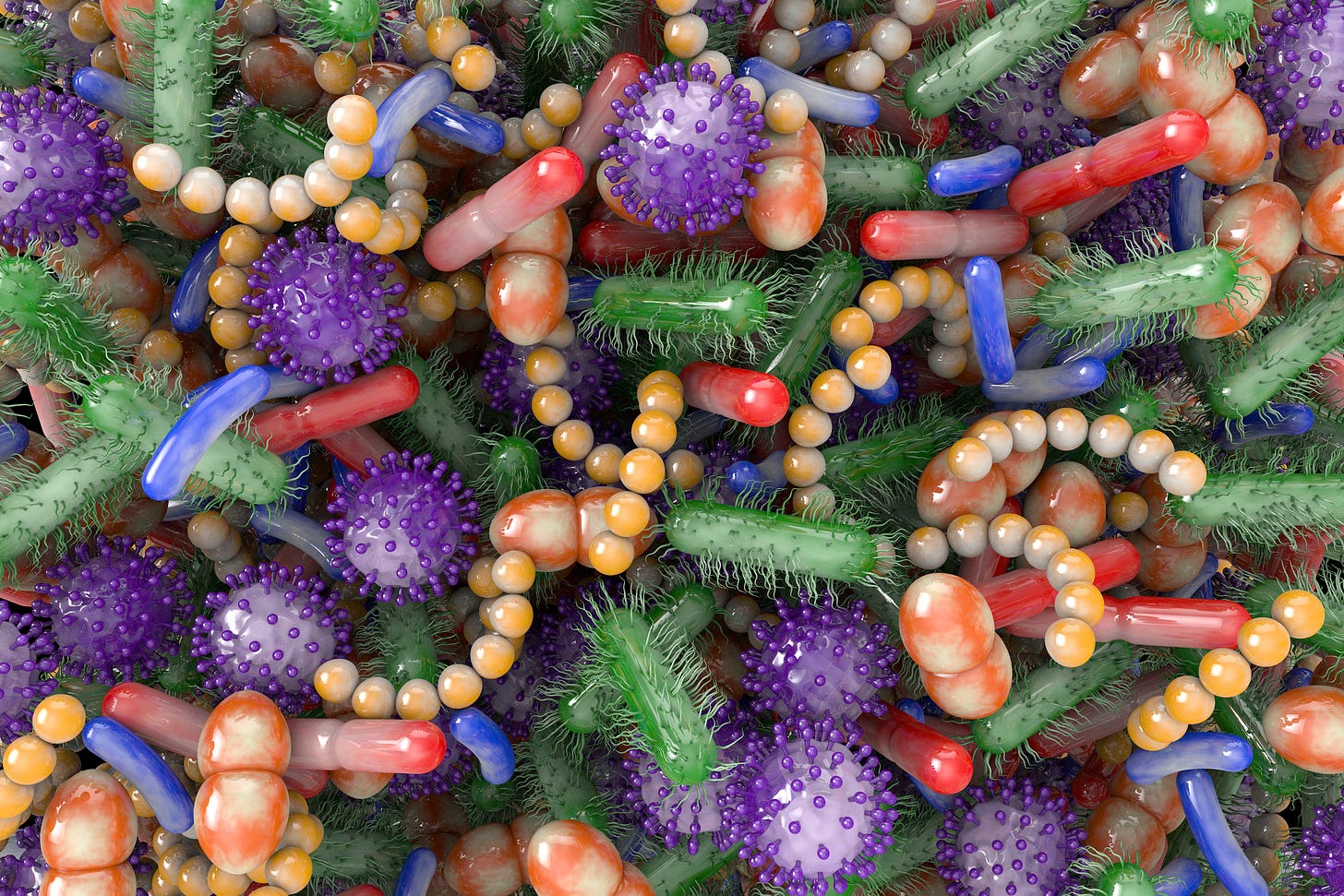Last weekend a friend was visiting from out of town and we went out drinking. Before the excursion we took a ZBiotics probiotic shot and the next day? Feeling great. These little miracles are engineered Bacillus bacteria, that produce acetaldehyde dehydrogenase in your gut. This enzyme breaks down the toxic byproducts of alcohol… and holy shit it works. A GMO consumer product that provides functional value. This is a big deal.
Probiotics are a super interesting class of “fermented products” which have many compelling uses, and I think will prove to be massive driver of investment and innovation in fermentation over the next decade.
Gut health
ZBiotics acts in the gut by producing an enzyme to break down the byproducts of alcohol metabolism. The typical use case for probiotics is related to gut health, such as improving digestion. Engineered probiotics could produce all kinds of useful compounds in the gut - how about a microbe that produces lactase to allow lactose intolerant people to break down milk proteins, or a suite of microbes that help with weight loss?
Mental health
The gut brain axis is fascinating. There are more neurons in your gut than the rest of your peripheral nervous system combined. It’s theorized that conditions like IBS may be more related to mental health, than a chronic gut issue. Microbes in the gut have been identified that are key to production and maintenance of serotonin levels - there is ongoing clinical investigation of microbial interventions for depression and other mental health disorders. Imagine pairing a probiotic with psychotherapy.
Longevity
There is evidence that certain diets allow people to live longer. Of particular interest are methionine restricted diets - Petri Bio has engineered a microbe that preferentially metabolizes methionine, and there is evidence that by supplementing a normal diet with this microbe, you may have the same effect as a restrictive diet. Depriving the body of other compounds in a similar way may have benefits in reducing inflammation or even fighting cancer.
Skin and cosmetics
The skin microbiome has been tied to healthy complexion, acne, and eczema. Products are in development for improved wound healing, atopic dermatitis and more. There are many low hanging fruit here, especially since the regulatory pathway for a topical probiotic product is somewhat easier than one that you ingest.
Agriculture
The soil microbiome plays a critical role in plant growth and the carbon cycle. Several companies are working on engineered probiotics for nitrogen fixation, to reduce reliance on nitrogen based fertilizer. Others may support water retention, salinity resistance, and disease prevention. Probiotics can also be used in animal agriculture to improve livestock health and increase productivity.
Challenges and opportunities
Only a small set of microbes are “Generally Recognized as Safe” (GRAS) by the FDA, so most probiotic companies have focused on those. But there are thousands of strains that already live on and in us, so there is an opportunity to seek out new microbes, learn to engineer them, and get them approved for human use.
It’s hard to get probiotics to colonize new environments. If you are looking to have durable changes in the gut microbiome for instance, daily dosing may be needed. The addition of prebiotics (e.g. microbe food and colonization factors) into probiotic products may help with this, but more exploration is needed.
Often a consortium or complex mix of microbes is needed to maintain therapeutic effect. Companies are developing tools to study how teams of microbes interact and are working on consortial products.
Furthermore, a lot of microbes are hard to grow outside the body, so we need better ways to scale up production of new probiotics so that they can be commercialized.
The synthetic biology industry is already engineering microbes to produce a wide range of novel products - why not engineer those inside of us to do the same?



